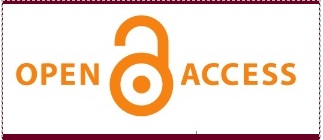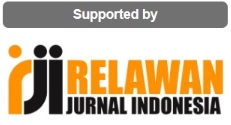Publication Ethics
This journal refers to and adopts the principles and guidelines established by COPE (Committee on Publication Ethics) to ensure integrity, transparency, and accountability in all aspects of the publication process.
A ‘code of conduct’ which outlines desired behavior and obligations of members of the scientific profession is needed in the publication of an article in peer-reviewed journal. Such a code of conduct attempts to optimize the advantages of science to society and the profession. The advancement of science necessitates the sharing of knowledge, even though this may sometimes forego any immediate personal advantage.
The publication of scientific research in journals is one of the fundamental ways in which GEOFORUM Jurnal Geografi dan Pendidikan Geografi serves the geography science communities. For this purpose, editors, reviewers, authors and publishers have to maintain the high ethical standard relating to the publication of manuscripts in the Majalah Geografi Indonesia, in accordance with COPE guidelines.
The "Jendela Pengetahuan" journal is committed to upholding the highest standards of publication ethics and takes all possible measures against publication malpractices. Authors, editors, reviewers, and publishers are expected to adhere to the following ethical guidelines:
- Duties of Authors
- Originality and Plagiarism: Authors must ensure that their work is original and has not been published elsewhere. Plagiarism in any form is unacceptable and will lead to the rejection of the manuscript.
- Acknowledgement of Sources: Proper acknowledgement of the work of others must always be given. Authors should cite publications that have influenced their work.
- Authorship of the Paper: Authorship should be limited to those who have contributed significantly to the study. All contributors who contributed substantially to the research should be listed as co-authors. Others who have participated in certain substantive aspects of the research project should be acknowledged or listed as contributors.
- Disclosure and Conflicts of Interest: All authors must disclose any financial or other substantive conflict of interest that might be construed to influence the results or interpretation of their manuscript.
- Data Access and Retention: Authors may be asked to provide the raw data in connection with a paper for editorial review and should be prepared to provide public access to such data if possible.
- Reporting Standards: Authors should present an accurate account of the work performed and objectively discuss its significance. Fraudulent or knowingly inaccurate statements constitute unethical behaviour and are unacceptable.
- Duties of Editors
- Publication Decisions: The editor decides which submitted articles should be published. The decision should be based on the paper's importance, originality, and clarity, as well as the study's validity and relevance to the journal's scope.
- Confidentiality: The editor and any editorial staff must not disclose any information about a submitted manuscript to anyone other than the corresponding author, reviewers, potential reviewers, and other editorial advisers.
- Fair Play: Manuscripts shall be evaluated solely on their intellectual merit without regard to the author's race, gender, sexual orientation, religious belief, ethnic origin, citizenship, or political philosophy.
- Conflicts of Interest: Editors should recuse themselves from handling manuscripts in which they have conflicts of interest resulting from competitive, collaborative, or other relationships with any authors, companies, or institutions connected to the papers.
- Duties of Reviewers
- Confidentiality: Any manuscripts received for review must be treated as confidential documents. They must not be shown to or discussed with others except as authorized by the editor.
- Acknowledgement of Sources: Reviewers should identify relevant published work that the authors have not cited. Any statement that an observation, derivation, or argument had been previously reported should be accompanied by the relevant citation.
- Standards of Objectivity: Reviews should be conducted objectively. Personal criticism of the author is inappropriate. Reviewers should express their views clearly with supporting arguments.
- Promptness: Reviewers should complete their reviews within the agreed-upon timeframe. Suppose a reviewer feels unqualified to review the research reported in a manuscript or knows that its prompt review will be impossible. In that case, they should notify the editor and excuse themselves from the review process.
- Conflicts of Interest: Reviewers should recuse themselves from evaluating manuscripts in which they have conflicts of interest resulting from competitive, collaborative, or other relationships with any authors, companies, or institutions connected to the papers.
- Duties of the Publisher
- Ethical Oversight: The publisher should ensure that the journal adheres to high moral standards and works closely with the editors to ensure the quality of the published content.
- Handling of Misconduct: In cases of alleged or proven scientific misconduct, fraudulent publication, or plagiarism, the publisher, in close collaboration with the editors, will take all appropriate measures to clarify the situation and to amend the article in question. This includes the prompt publication of an erratum, clarification, or, in the most severe case, the retraction of the affected work.
- Addressing Ethical Issues
- Corrections and Retractions: When errors are discovered in published works, the author must promptly notify the journal editor or publisher and cooperate with them to correct the paper in the form of an erratum or retract it.
- Investigating Misconduct: The journal will investigate any allegations of misconduct, following COPE (Committee on Publication Ethics) guidelines. If misconduct is found, appropriate actions will be taken, including possible notification to the author's institution and retraction of the paper.















